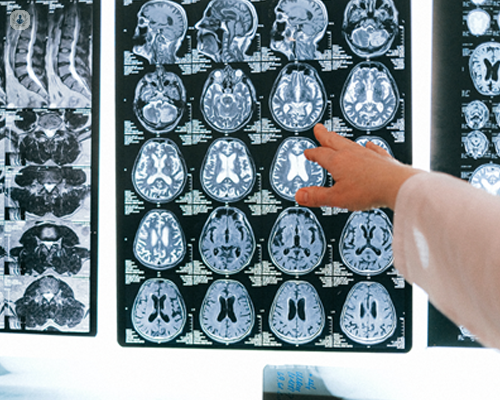Unlocking the power of prevention: top lifestyle changes to slash your stroke risk
Escrito por:A Stroke is a leading cause of death and long-term disability worldwide, but many cases can be prevented with simple lifestyle changes. Understanding the key risk factors and how to mitigate them can significantly reduce your chances of having a stroke.
In this article, Dr Ali Al-Memar will answer the most common questions about how to effectively lower your stroke risk.
What are the major risk factors for stroke?
Several risk factors increase the likelihood of stroke, many of which are linked to lifestyle choices. The most significant include:
- High blood pressure: This is the most critical risk factor for stroke. Elevated blood pressure damages arteries, making them more likely to burst or become blocked.
- Smoking: Smoking accelerates the build-up of fatty deposits in arteries, contributing to stroke risk.
- Obesity: Excess weight increases your risk of high blood pressure, diabetes, and high cholesterol – all major stroke risk factors.
- Physical inactivity: A sedentary lifestyle contributes to obesity and increases the risk of high blood pressure, diabetes, and heart disease.
- Excessive alcohol consumption: Drinking large amounts of alcohol can raise blood pressure and increase the risk of stroke.

How can i lower my stroke risk through diet?
Diet plays a crucial role in stroke prevention. Here are some changes that can make a significant difference:
- Reduce salt intake: excessive salt in the diet is directly linked to high blood pressure, a leading cause of stroke. Aim to keep salt intake to a minimum.
- Eat more fruits and vegetables: a diet rich in fruits, vegetables, whole grains, and lean protein helps reduce blood pressure and maintain a healthy weight. These foods are rich in essential vitamins, fibre, and antioxidants, which contribute to cardiovascular health.
- Limit saturated fats and cholesterol: reducing your intake of foods high in saturated fats and cholesterol can help lower your risk of atherosclerosis, which narrows the arteries and increases stroke risk.
- Moderate alcohol intake: stick to the recommended guidelines of no more than 14 units of alcohol per week to avoid increased blood pressure and cardiovascular problems.
How important is exercise in reducing stroke risk?
Physical activity is crucial for maintaining a healthy cardiovascular system. Regular exercise can help lower blood pressure, reduce obesity, and improve overall heart health.
- Aim for at least 150 minutes of moderate exercise each week. This could include activities like brisk walking, swimming, or cycling.
- If you’re new to exercise, start with short sessions and gradually increase the intensity and duration over time.
How does quitting smoking reduce stroke risk?
Smoking is one of the most preventable causes of stroke. When you smoke, your blood becomes thicker, your arteries narrow, and your blood pressure increases – all of which elevate stroke risk.
- Quitting smoking has immediate and long-term benefits. Within weeks, your blood circulation improves, and your risk of stroke begins to decline. After a few years, your stroke risk can be similar to that of a non-smoker.
Why Is managing stress important for stroke prevention?
Chronic stress can raise blood pressure and contribute to unhealthy behaviours such as overeating, drinking, and smoking – all of which increase stroke risk.
- Stress management techniques like mindfulness, meditation, and regular physical activity can lower your stress levels and help maintain healthy blood pressure.
Can medications help prevent stroke?
In some cases, lifestyle changes alone may not be enough to control risk factors like high blood pressure or high cholesterol. Medications can play an important role in stroke prevention:
- Antihypertensive medications help control blood pressure.
- Statins reduce cholesterol levels.
- Antiplatelet drugs, like aspirin, reduce the likelihood of blood clot formation.
Consult your doctor to assess your individual risk and discuss whether medication is necessary.
Conclusion
While stroke is a serious condition, making key lifestyle changes can greatly reduce your risk. Eating a healthy diet, staying physically active, quitting smoking, and managing stress are all powerful ways to protect yourself from stroke.
Are you thinking about getting a diagnosis to prevent a stroke? Arrange a consultation with Dr Ali Al-Memar via his Top Doctors profile.


